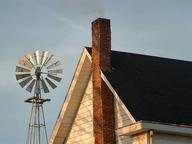Quiz Answer Key and Fun Facts
1. What is the official name of the Quakers?
2. From what date does the sect mark its beginning?
3. Who was the individual whose personal journey of truth seeking and enlightenment led to the establishment of the Quakers as a coherent group of believers?
4. Why did the early Quakers come to America?
5. Which set of beliefs best represents Quaker philosophy?
6. Which college or university has "The Quaker" as its mascot?
7. In what area in the colonies were Quaker missionaries imprisoned, tortured, and expelled?
8. What was the name of the organization, founded by individual British Quakers in 1919, which brought medical assistance and relief to war torn areas in Europe during both world wars and notably to China after WWII as well?
9. Which two United States presidents considered themselves Quakers?
10. Which of these famous early Americans was not a Quaker?
Source: Author
Nealzineatser
This quiz was reviewed by FunTrivia editor
agony before going online.
Any errors found in FunTrivia content are routinely corrected through our feedback system.

